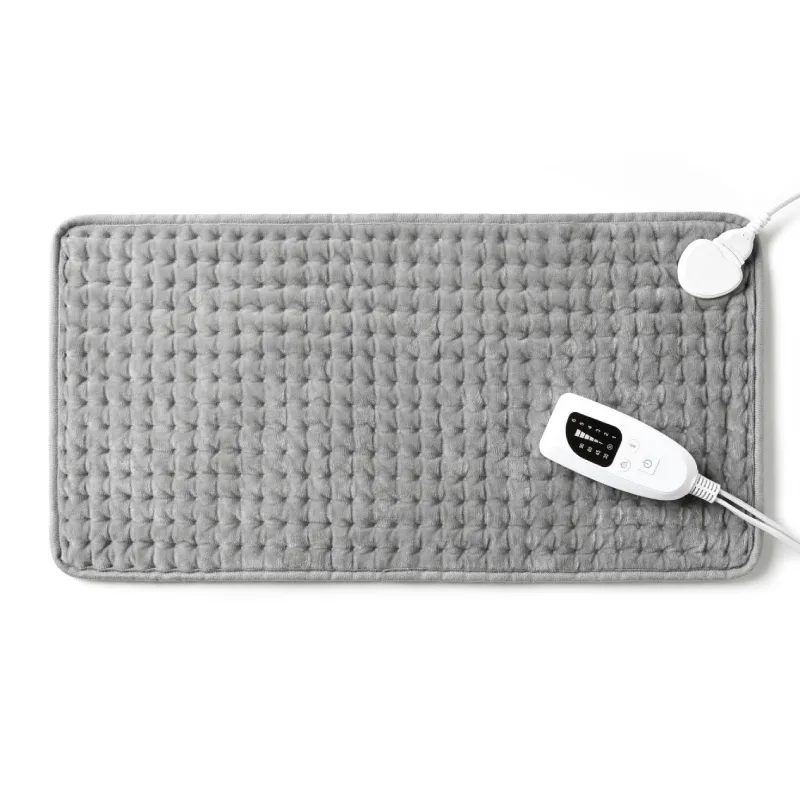
نوفمبر . 02, 2024 14:14 Back to list
Are Heating Pads Harmful for Your Back Health and Comfort?
Are Heating Pads Bad for Your Back?
Heating pads have long been a popular home remedy for back pain relief. Many people rely on the soothing warmth provided by these pads to alleviate discomfort and promote relaxation. However, there are concerns about whether using heating pads for back pain can have negative effects. In this article, we will explore the benefits and potential downsides of heating pads to determine if they are bad for your back.
The Benefits of Heating Pads
Heating pads work by increasing blood flow to the affected area, which can help reduce muscle stiffness and promote healing. The warmth encourages relaxation of the muscles, which can relieve tension and discomfort. Many individuals find that a heating pad can provide immediate relief from acute pain caused by muscle strains, tension, or inflammation.
Moreover, heating pads can enhance the effectiveness of other treatments, such as physical therapy. When tissues are warmed, they often become more pliable, allowing for improved flexibility and range of motion during stretching or exercises. This is particularly beneficial for those who experience chronic pain due to conditions like arthritis or fibromyalgia.
Additionally, using a heating pad before bed can aid in improving sleep. The calming effect of warmth can help relax the body and prepare it for rest, leading to a more restful night and potentially better overall health.
Potential Downsides
Despite their many benefits, there are some potential downsides to using heating pads for back pain. One concern is that prolonged use of heat can sometimes lead to overheating of the tissues. This can result in increased inflammation in the affected area, particularly if there is an underlying injury. The body’s natural response to injury includes inflammation, and excessive heat can exacerbate this process.
Moreover, overuse of heating pads can lead to a dependency on heat for pain relief. Individuals may start relying solely on heating pads instead of exploring other, potentially more effective treatments, such as physical therapy, exercise, or medication. This can prevent them from addressing the underlying causes of their back pain.
are heating pads bad for your back

Heat therapy might not be suitable for everyone. For instance, individuals with certain medical conditions, such as diabetes, or those with skin sensitivities may experience adverse reactions to heat. There is also a risk of burns or skin irritation from improper use of heating pads, especially if they are placed directly against the skin or left on for too long.
Recommendations for Safe Use
If you choose to use a heating pad for back pain, it is essential to do so safely. Here are some recommendations
1. Limit Duration Use the heating pad for short durations, typically no more than 15-20 minutes at a time. Allow the skin to cool off before reapplying.
2. Avoid Direct Contact Always place a layer of clothing or a towel between the pad and your skin to prevent burns.
3. Monitor Temperature Ensure the heating pad is at a comfortable temperature, and monitor it to avoid overheating.
4. Consult a Professional If your back pain persists, consult with a healthcare provider to explore the underlying causes and receive tailored treatment advice.
Conclusion
In conclusion, heating pads can be beneficial for alleviating back pain when used appropriately. However, they also carry risks that should not be overlooked. As with any treatment option, it is crucial to weigh the benefits against potential downsides and to use heating pads as part of a broader pain management strategy. Always consult with a healthcare professional if you have concerns about the best course of action for your back pain.
-
The Rise of Heated Blankets for Dogs Outdoor
Jun.09,2025
-
Revolutionize Your Sleep with a Heated Mattress Blanket
Jun.09,2025
-
Revolutionize Your Comfort: Discover the Cordless Heated Blanket Advantage
Jun.09,2025
-
Keep Your Pets Warm and Comfortable
Jun.09,2025
-
Experience Warmth Reimagined: Discover the Power of an Electric Blanket
Jun.09,2025
-
Choosing the Best Cat Heating Pad Indoor and Out
Jun.09,2025
Realted Products



